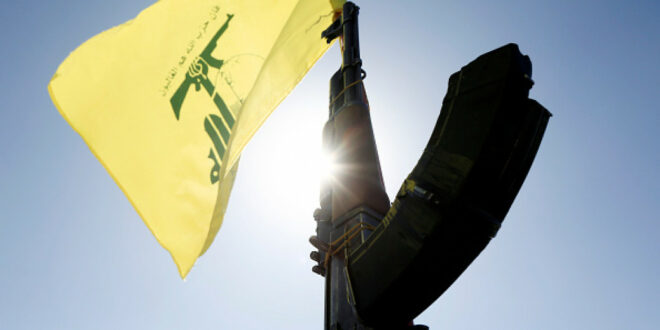Political consultations intensified in Lebanon on Tuesday ahead of a cabinet session at Baabda Presidential Palace, where ministers are expected to debate the sensitive issue of Hezbollah’s weapons.
The session comes amid mounting tensions in the streets, with Hezbollah supporters staging late-night motorbike rallies in Beirut’s southern suburbs and regions in the Bekaa Valley and the south, rejecting any move to disarm the group.
Sources told The New Arab’s Arabic edition Al-Araby Al-Jadeed that no final agreement had yet been reached on the wording of any government decision. Multiple proposals were reportedly being floated to avoid confrontation, including delaying the weapons item on the agenda until Thursday.
According to the same sources, the US proposal delivered by envoy Tom Barrack will be presented for discussion during the session, but without any final vote.
Ministers will be invited to express their views, while the government may assign the Higher Defence Council or the Lebanese Army to submit recommendations. Other proposals also remain on the table, though no consensus has emerged.
“There is no agreement so far on a decision,” a senior official told Al-Araby Al-Jadeed, noting that the aim is to buy time and prevent escalation. “Security forces will also play their role in keeping the situation under control.”
Parliament Speaker Nabih Berri is reportedly engaged in efforts to convince Hezbollah to attend the session by offering guarantees that no binding decision will be taken on disarmament.
Instead, the agenda would reaffirm the state’s exclusive right to arms, aligning with President Joseph Aoun’s inaugural address and the ministerial statement of Prime Minister Nawaf Salam’s government. The push also seeks to refocus attention on Israel’s occupation of Lebanese territory and its repeated violations of the ceasefire agreement.
Parties opposed to Hezbollah, including the Christian right-wing Lebanese Forces led by Samir Geagea and the Kataeb Party headed by Sami Gemayel, are pressing for a clear and immediate decision.
They are calling for a timetable for disarmament to be adopted without further delay, warning that Lebanon risks losing promised US assistance and facing possible Israeli escalation. They also dismissed warnings of civil conflict as a pretext for delay.
Hezbollah, for its part, maintains that Israel must take the first step by withdrawing from the areas it occupies in southern Lebanon.
MP Ali Fayyad said the group is open to a resolution under UN Security Council Resolution 1701 and committed to the ceasefire, but insisted that Israel must first withdraw from Lebanese land, halt its attacks, and release prisoners.
Hezbollah-affiliated media reported that Barrack rejected Lebanon’s proposed amendments to the US plan and is demanding that Lebanon commit to a disarmament timetable and border demarcation with Syria before Washington would pressure Israel to act.
Al-Manar, the party’s TV channel, described the American proposal as “a complete Lebanese surrender to the Israeli enemy”.
Tensions between Hezbollah and President Aoun also surfaced for the first time since his election in January, with Al-Manar criticising the president for omitting any mention of ongoing dialogue with the party and accusing him of backtracking on Lebanon’s official positions.
 Eurasia Press & News
Eurasia Press & News




